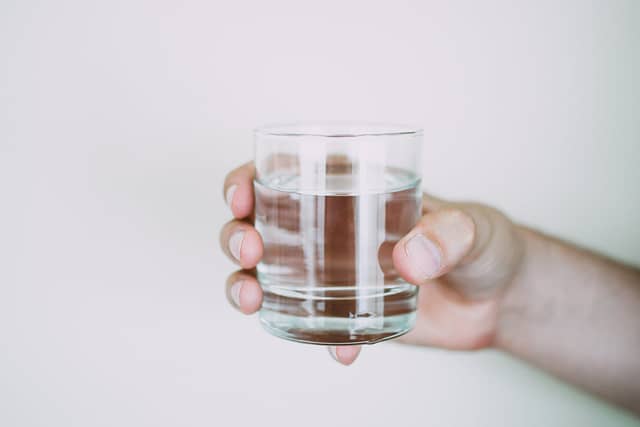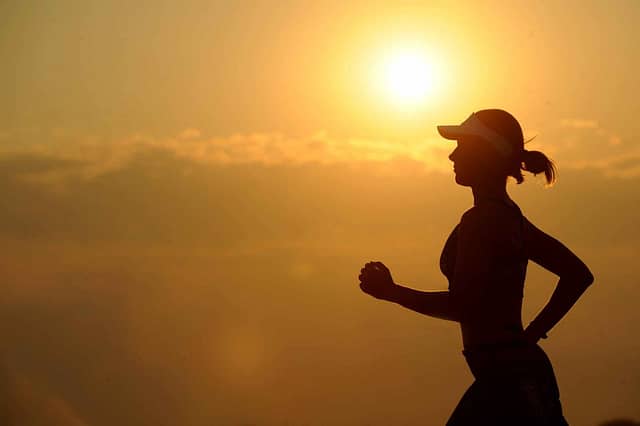
How Much Water Should I Drink Each Day?
The human body is composed of 60% water. Each body’s function requires water, such as flushing toxins from the organs, transporting nutrients to your cells, cushioning the joints, and helping the digestion of food. Therefore it is pretty much evident that water is the basic need of the human body to live a healthy life or, let me say, stay alive. If we don’t get enough water, we can be dehydrated, resulting in dizziness, confusion, and even seizures.
But the question prevails that how much water should I drink each day? There is no clear and accurate answer to this question as your daily water requirement depends on various factors such as your size, how much exercise you do, the weather where you live, and other things. The article below will answer some common and frequently asked questions about how much water a person should drink every day to separate fact from fiction.

How Much Water Should I Drink Each Day?
Our body loses water during breathing, perspiration, urination and while passing stools. To replenish this water loss and maintain the body’s hydration, it is essential to drink adequate water. How much water should you drink depends on a lot of things and differs from person to person. According to The U.S. National Academies of Sciences, Engineering, and Medicine, the general recommendation for healthy adults are:
- 11.5 cups (2.7 litres) a day for women
- 15.5 cups (3.7 litres) a day for men
This water comes from the intake of water, beverages, hot drinks and food.
The Eatwell Guide says we should drink 6 to 8 glasses of fluid a day and an average of 20 per cent of the water we require comes from the foods we eat. How much water should I drink depends on various factors such as age, gender, health conditions and physical activities? For some people, even less than eight glasses of water per day might be enough. But the requirement may vary in other people.
You might need to modify the total fluid intake based on these factors:
Exercise

If you are an active person and do exercise regularly to sweat, you need to drink adequate water to cover the fluid loss. It’s essential to drink water plenty of water before, during and after a workout. A person more active during the day or walk or stand a lot, need more water than someone sitting at a desk all day.
Overall Health
The body loses fluids when you have a fever, vomiting or diarrhoea. If you are struggling with such health conditions, Drink more water or medically recommended oral rehydration solutions. Other medical conditions such as bladder infections and urinary tract stones require increased fluid intake. Other health condition like diabetes and medications like diuretics can also make you lose water.
Pregnancy and breastfeeding
Pregnant or breastfeeding women need additional fluids to stay hydrated.
Where you live
People living in need in hot, humid, or dry areas need more water to stay hydrated. Hot or humid weather can make a person sweat more and requires additional fluid intake. Dehydration also can occur in people living at high altitudes.
Your Diet

People who drink more coffee and other caffeinated beverages lose more water through extra urination. They are likely to need to drink more water. People, taking a diet high in salty, spicy, or sugary foods. Or, those who don’t eat a lot of hydrating foods high in water like fresh or cooked fruits and vegetables should drink more water.
What Happens to your Body when You don’t Drink Water?
As mentioned in this article and suggested by health professionals, drinking water is mandatory for a healthy body and mind. At first, it seems a bit challenging to add approximately two litres of water to your diet. It just takes a conscious effort to start making healthy choices. Unfortunately, if you are not drinking enough water, it can cause havoc to different systems of your body and badly affect your health.
Read on below to find that what happens to your body if you are not drinking adequate water.
You Gain Water Weight
Skimping on drinking water can cause water retention and temporary weight gain as your body preserves every drop to prevent dehydration.
The Energy level Drops

Even slight dehydration can significantly drain the energy levels leaving you tired all day.
You lose Focus
The brain is made up of 80% water, and its ability to function depends on adequate hydration. A study in the journal Nutrients states that drinking water can prevent memory and attention decline.
The Risk of Stroke Increases
According to a BMC Cardiovascular Disorders study, dehydration makes it longer for you to recover from a stroke, but it can make it worse.
You Get Crankier
Two studies from the University of Connecticut involves men and women in a series of cognitive tests. The studies found that even being mildly dehydrated affected moods and caused fatigue and headaches.
You Feel Hungrier
It’s prevalent to confuse hunger with dehydration. Keeping yourself hydrated helps you to avoid those unhealthy cravings.
The Metabolism Get Slow
A study from The Journal of Clinical Endocrinology and Metabolism shows that After drinking approximately 17 ounces of water, participants metabolic rates increased by 30 per cent. The researchers estimate that increasing water intake by 1.5 litres a day would burn an extra 17,400 calories over the year.
The Skin Worsens
Water helps to plump up the skin. When you don’t drink the required water, the collagen begins to crack and bind together, causing the appearance of fine lines and wrinkles.
Workout Performance Suffers
Your body cannot efficiently convert carbs into energy without ample water. According to The Physiological Society, dehydration leads to poor exercise performance and insufficient liquids in the body will also reduce the breakdown of fat.
Constipation
The digestive health is well maintained when the colon absorbs up to five litres of water per day, making it easier to expel the waste. But when your body is dehydrated, it absorbs more water, making it harder to remove debris.
Kidneys will Function Poorly
Without enough water, the kidneys have to work hard to filter out the blood, and severe dehydration may also lead to failure or, worse, kidney stones.
Heart Suffers
When you are dehydrated, the heart has to work harder to maintain blood flow when you stand up as well as the insufficient blood flow to your brain can result in fainting.
Erectile Dysfunction
Males not drinking enough water produce an increased amount of angiotensin, a type of hormone that is commonly found in men who have difficulty achieving stable erections.
Your Pee Colour Changes
When you don’t drink enough water, the urine colour changes into a darker yellow. If you’re dehydrated, you might not even pee at all.
Sources of Water
It’s important to replace water losses to enjoy good health. You can do this by drinking various beverages and eating foods that have a high water content, such as fruits and vegetables. For drinks, focus on unsweetened beverages, like water to limit calories from added sugars.
Foods that are Rich in Water Content
Food Options with good water content in them include:
- Drinks such as water, sparkling water and fat-free milk.
- Fruits such as oranges, strawberries and watermelon, bananas, grapes, oranges, pears and pineapples.
- Vegetables such as lettuce, cabbage, celery, spinach, carrots, cooked broccoli and avocados.
- Dairy products such as yoghurt, cottage cheese and ricotta cheese.
The bottom line
In the end, no one can tell you exactly how much water should you drink. .Try experimenting with it according to the factors mentioned above to see what works best for you. Some people may function better with more water than usual, while for others, it only results in more frequent visits to the bathroom.
If you want to keep things simple, these guidelines should apply to the majority of people. During high heat and exercise and other mentioned indications, make sure to drink enough to compensate for the lost or extra needed fluids. That’s it!





